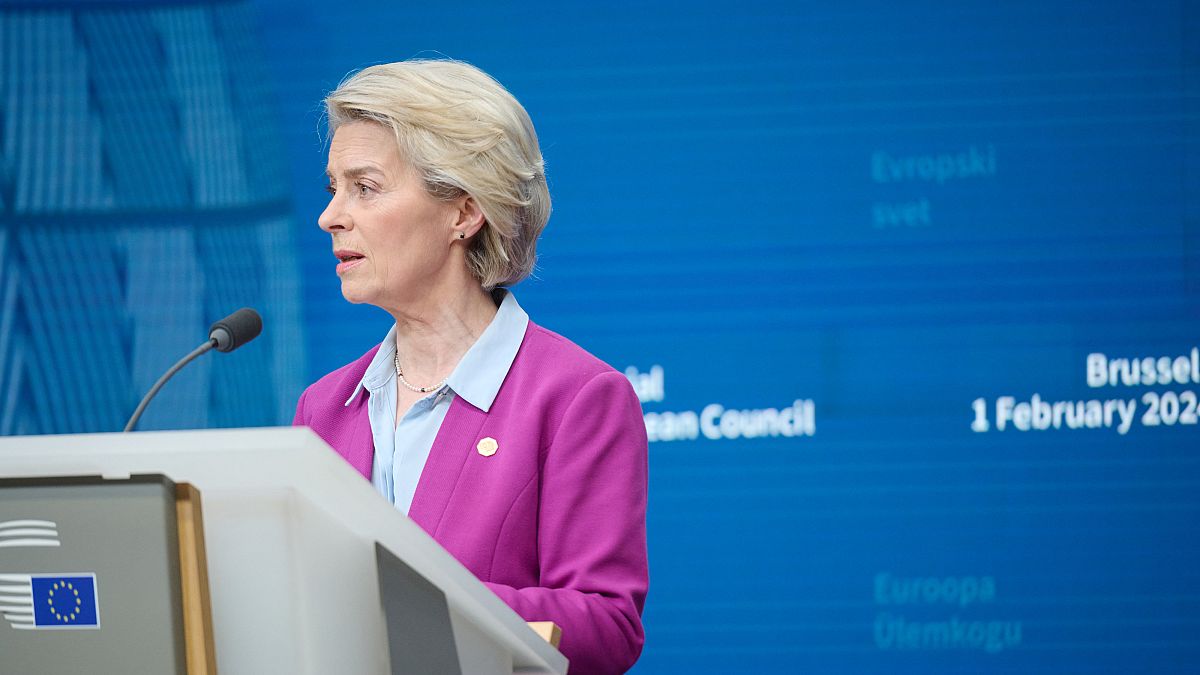Von der Leyen staffing turbulence plays into EU elections
A human resource crisis at the Commission comes ahead of a sensitive changing of the guard in Brussels. Controversial small-business envoy Markus Pieper now won’t take up duties at the European Commission – but the scandal takes place at a sensitive time in Brussels. A decision to hand a lucrative €20,000-a-month official post to Pieper, […]


A human resource crisis at the Commission comes ahead of a sensitive changing of the guard in Brussels.
Controversial small-business envoy Markus Pieper now won’t take up duties at the European Commission – but the scandal takes place at a sensitive time in Brussels.
A decision to hand a lucrative €20,000-a-month official post to Pieper, a member of the same German political party as Commission President Ursula von der Leyen, could have complex repercussions ahead of European elections due in June.
In a statement posted on X, Pieper himself said the role had been “abused for party political reasons”, and accused EU Industry Commissioner Thierry Breton of having “boycotted” his appointment.
“Things will look different after the European elections with the foreseeable new majorities,” Pieper added – suggesting that future Commission official recruitments could be influenced by June elections projected to see a rise in support for right-wing parties.
Sources close to Breton said Pieper’s allegations were “ludicrous at best”, while Commission Chief Spokesperson Eric Mamer declined to comment.
But Mamer was candid that pre-election turbulence has played a role, after MEPs voted 382-144 in favour of rescinding the appointment.
“The context in which this whole procedure has evolved in recent weeks is not serene,” Mamer said. “Waiting for the end of elections will bring us to a point in time where the procedure can take place in a better environment.”
The Pieper hire drew controversy given allegations he scored worse on assessment tests than other candidates, and was not supported by Breton, the portfolio Commissioner for the role, in apparent contradiction to official senior appointment guidelines.
Piepergate comes at a sensitive time
It comes at a key moment in Brussels, with changeovers pending at both Commission and Parliament.
Von der Leyen is currently campaigning for a second five-year term in office as candidate of the centre-right European People’s Party.
According to most polls, the EPP will likely come first, but she’s unlikely to win an outright majority. To be voted into office, she’ll almost certainly have to form some kind of coalition with the MEPs currently her rivals.
And those lawmakers are certainly making hay from the scandal.
Von der Leyen “went too far” in appointing Pieper, and “his resignation was the only way out of the unbearable situation” she and the EPP had created, said a post on X by the Socialists and Democrats, the Parliament’s second biggest party. The EPP did not immediately respond to a request for comment.
Though Piepergate won’t change the price of butter, EU hiring crises can sometimes have an outsize impact.
Long ago in 1999, a previous Commission president, Jacques Santer, was forced to resign after a scandal in which one of his Commissioners hired a dentist to a senior advisory position.
And in a speech last week, the EU’s Ombudsman, responsible for investigating cases of maladministration, highlighted “some causes for concern” in the politicisation of official roles.
Though she didn’t refer to the Pieper case directly, Ombudsman Emily O’Reilly said “there has also been an overt political evolution in the outlook” of the Commission’s most senior decision-making body, and warned that “this drift toward overt politicisation might extend deeper into the workings of the system.”
Mamer said today that “there is no reason” for O’Reilly to probe the Pieper case further, as the Commission “respected all of the relevant procedures when it came to the selection process.”














